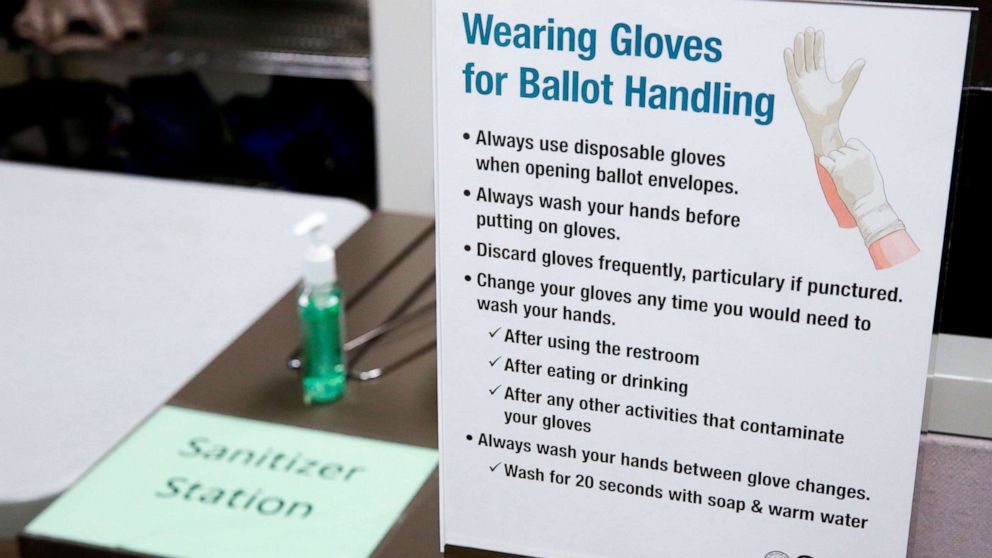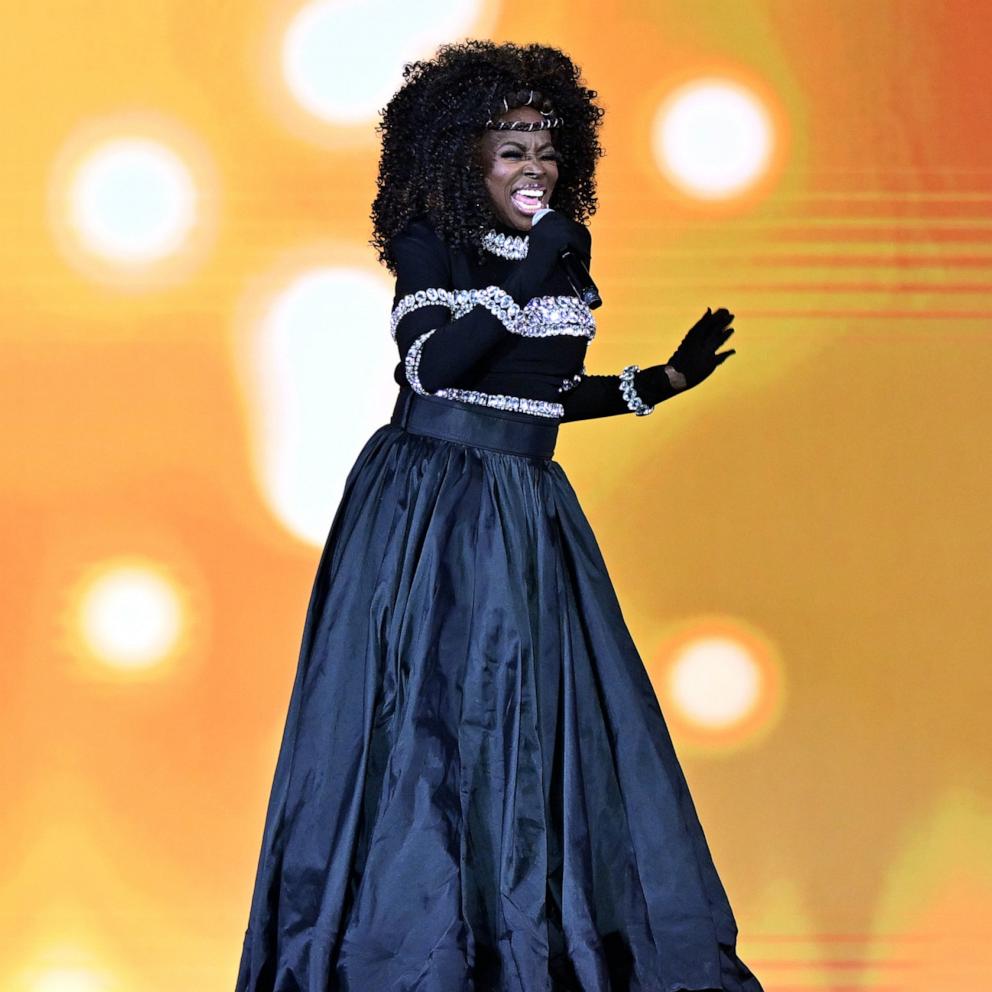Primaries show high volume of absentee voting as states grapple with coronavirus
Against a backdrop of coronavirus concerns, early signs from across the six states voting in Tuesday's primaries showed a high volume of voters turning to absentee options.
Yet several state and party officials who ABC spoke with pushed back against the notion that turnout would be affected.
Washington
Washington, which is vote-by-mail only, is the state with the most confirmed cases of COVID-19. But Kylee Zabel, the communications director in the secretary of state’s office, said they “haven’t heard of any concerns that people have expressed” regarding the coronavirus.
As Washington uses only mail-in ballots, a tweet last week instructed voters, “Whether healthy or sick, please don’t lick!” after state health officials recommended voters seal ballots using alternative methods like a sponge.
The secretary of state’s office said it recommended that ballot counters use gloves, but in King County -- which includes Seattle -- Elections Division Chief of Staff Kendall Hodson told ABC News that the practice is mandatory.
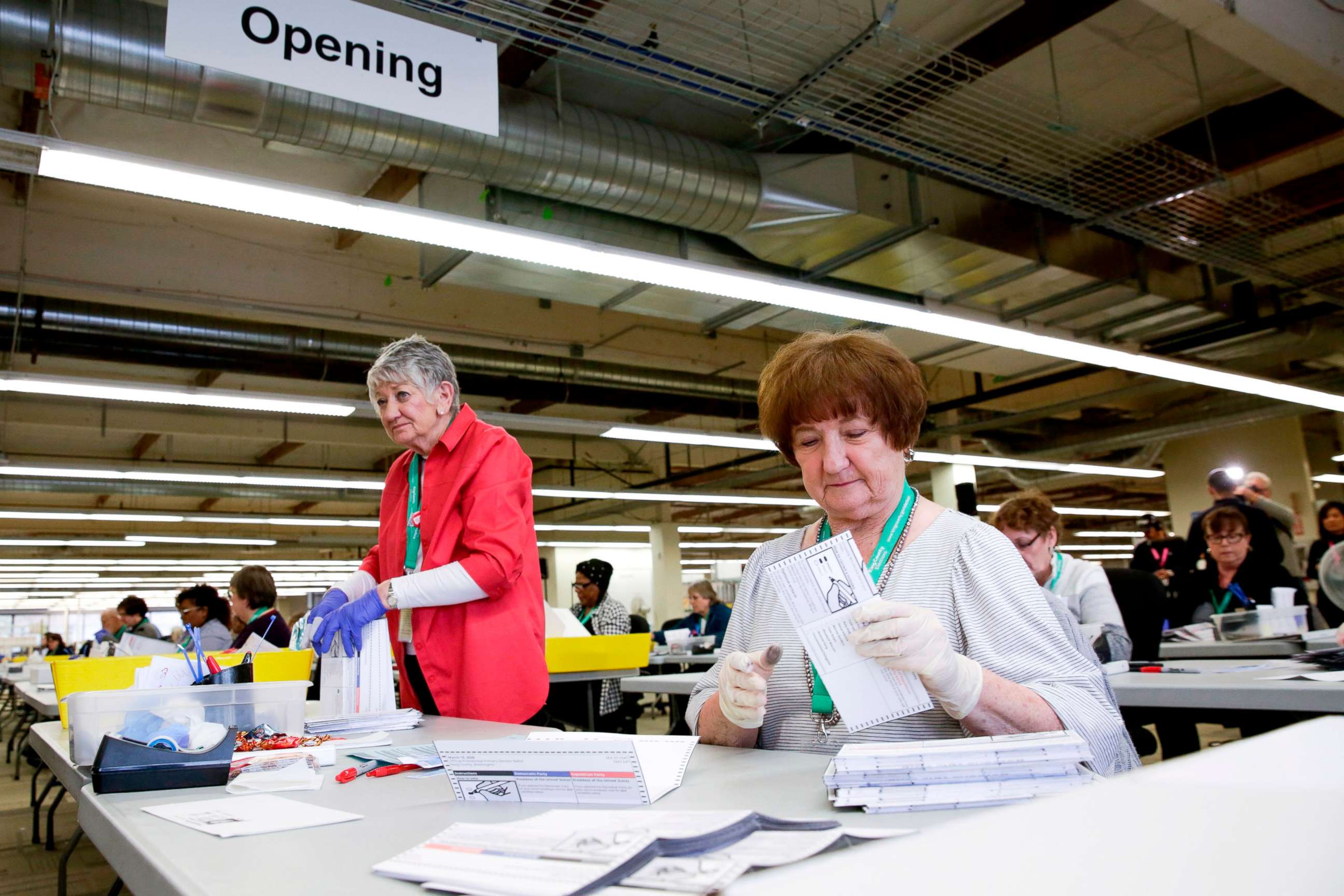
Hodson also said that there were regular hand-washing breaks for ballot counters, and at the six vote centers in the county where people can do same-day registration, there was extra hand sanitizer available. The Elections Division was also asking people who were feeling sick to contact them so they could try to accommodate them.
As of 8 p.m. ET Monday, there were 1,817,547 ballots received, according to Zabel. Of these, 1,158,718 were Democratic ballots, and 592,430 were Republican.
"We typically see about half of the ballots we will receive for the whole primary on the Monday, Tuesday and Wednesday of election week, with about the same number of ballots received Wednesday that we’ll receive today," Zabel said.
A majority of ballots will be processed statewide by Friday, Zabel said.
Washington held a caucus in 2016 -- so it's not apples to apples regarding turnout -- but only about 230,000 people participated in the state's Democratic caucuses in 2016.
Michigan
Michigan had record absentee ballots cast this year, after they implemented a new election law in 2018 to allow for no-excuse absentee voting, which is being used for the first time this cycle.
On Tuesday, officials said a total of 821,124 absentee ballots had been returned to the secretary of state for all voters across both major parties, representing a 55% increase from 2016.
"This is more absentee ballots than we’ve ever had in a presidential primary election, and we are close to the numbers we had in the 2016 general presidential election," a spokesperson from the secretary of state's office told ABC News.
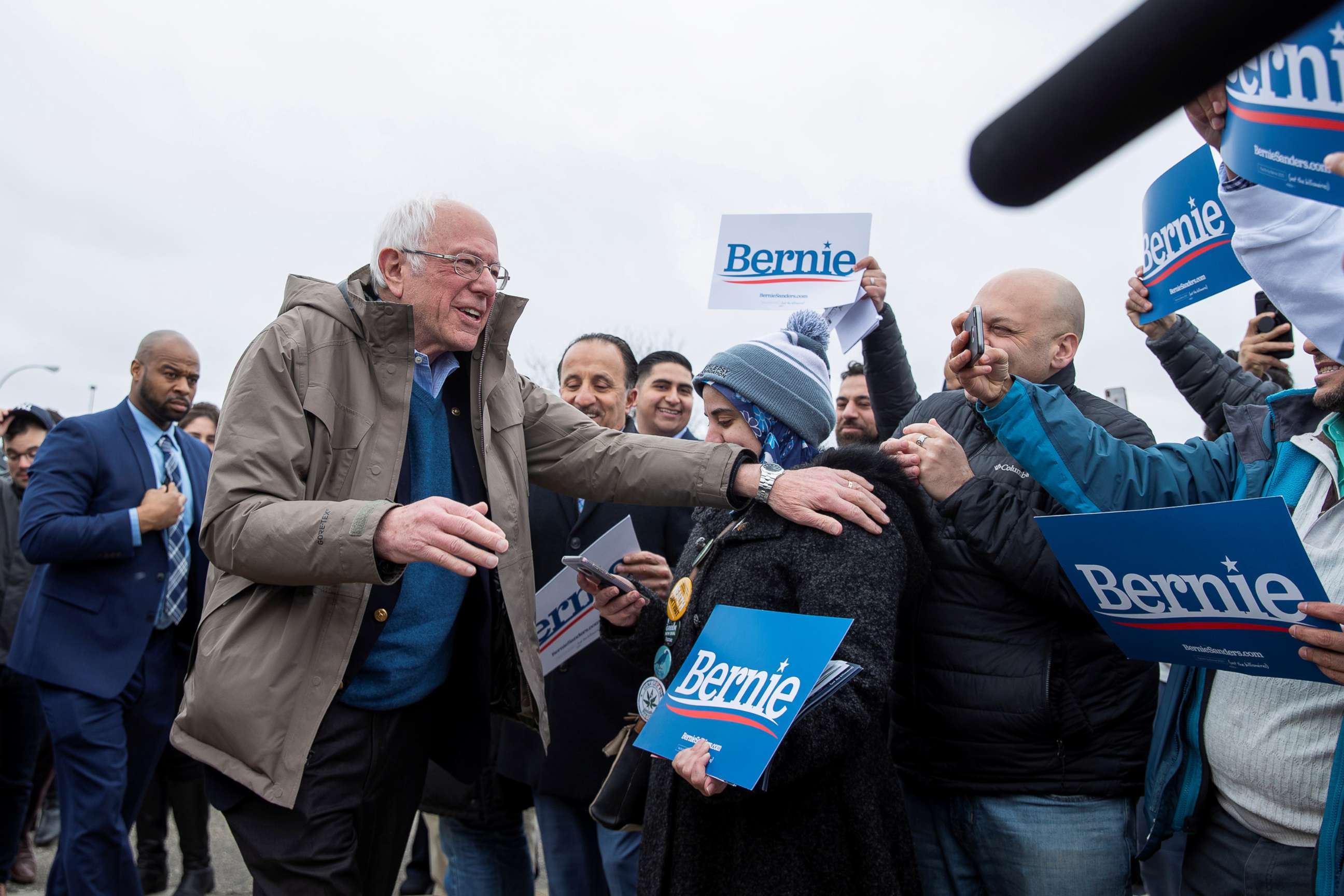
But officials said the increase was likely due more to the new election law than it was due to coronavirus concerns.
"It's a huge spike in absentee voting, but we're not sure if that's even indicative of much higher turnout, frankly, so I would point more to that new law than any kind of coronavirus scares," a spokesperson for the Michigan Democratic Party told ABC News.
Voters could have started submitting their absentee ballots 45 days before election day. As of Tuesday, 36,574 voters in Michigan had "spoiled" their ballots -- meaning they asked for their absentee ballot to essentially be nullified and were given a new one. Michigan is the only state that allows voters to spoil their ballots and re-cast them for another candidate.
North Dakota
In North Dakota, where there is a party-run primary, a North Dakota Democratic Party official stopped by the Bismarck polling location Tuesday, telling ABC News, "There's a line, but people are in good spirits and enthusiastic about voting. What we're seeing so far this morning is exciting, and we're hopeful for especially high turnout."
Regarding concerns over the coronavirus, the official said that the state party is "in touch with the North Dakota Department of Health," which as of Tuesday morning had reported no coronavirus cases in the state.
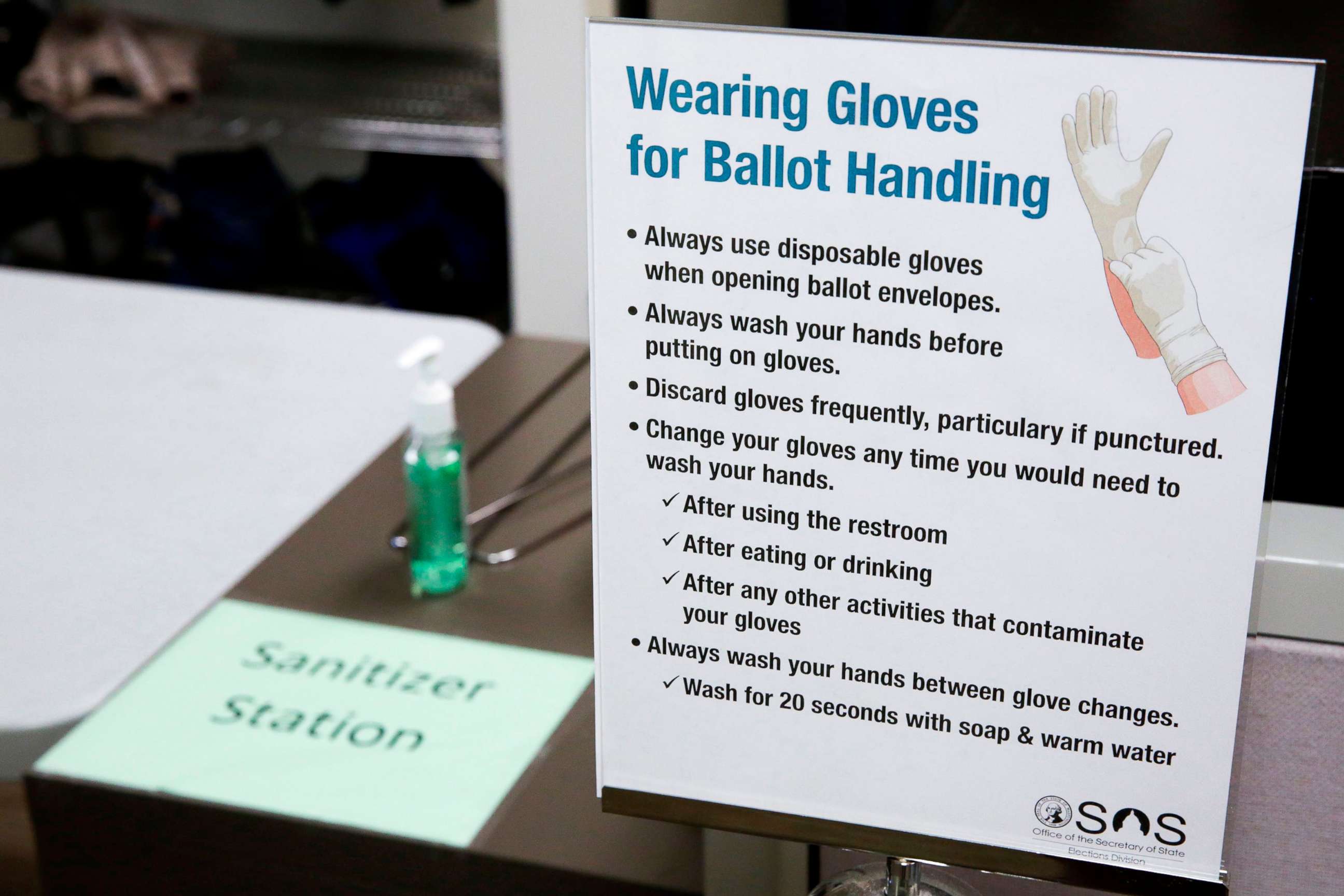
State party officials said they were "following their guidance, and we urge everyone else to do so as well. We do not expect it to depress turnout."
North Dakota, for the first time this cycle, added an early voting mail-in program in addition to their "firehouse caucus."
Mail-in ballots had to be postmarked by March 5 to be counted. More than 3,100 people requested ballots, compared to the 3,348 total people who caucused in-person in 2016. State party officials said that was a major indicator that turnout would be high.
Idaho
Since the Democratic Party hasn’t held a primary over a caucus in the “meaningful past” according to the secretary of state's office, state officials said it was difficult to predict what turnout would look like.
There hasn’t been a confirmed case of COVID-19 in Idaho.
“Our position has been, ‘Yes, we understand that it’s a concern nationwide,’” Chad Houck, the chief deputy secretary in the secretary of state’s office, told ABC News. “As a result, it is prudent that we take cautionary measures and adopt the best CDC practices.”
“At this point in time we aren’t recommending any additional measures,” Houck said.
Missouri
Though state officials were hesitant to say how turnout would look statewide, St. Louis County board of election officials told ABC News that turnout looks “relatively light.”
“It doesn’t look like we will equal turnout for 2016, which was 45%,” Eric Fey, the board of elections Democratic director, told ABC News.
Fey said that his office hadn't heard any concerns about COVID-19 from voters.
On the other hand, in Kansas City, Board of Elections Director Shawn Kieffer told ABC News that Jackson County has seen at least 10% of its poll workers quit over concerns of COVID-19.
“Monday and Friday we lost 77 poll workers,” Kieffer said. “We lost more today. Of course it was important to keep everyone as safe as possible.”
“We sent out wipes and things to clean the machines off. We sent off Purell, we sent out everything we could possibly get our hands on, and we completely depleted our supplies,” Kieffer said.
Officials there also don’t expect to match 2016’s turnout, telling ABC News around 5:30 p.m. ET Tuesday that they are in the “upper 20s” while in 2016 they hit 32% of the population.
“I imagine we will probably hit 27 or 28%,” Kieffer said. “I know a lot of people who had supported candidates who are no longer in contention.”
Mississippi
Mississippi officials said Tuesday that the state was far is outpacing its 2016 absentee ballot return. As of Tuesday morning, 21,932 absentee ballots had been returned, compared to 18,467 in 2016. All ballots had to be returned by 5 p.m. local time Tuesday.
The secretary of state’s office was quick to highlight that there are no confirmed cases of COVID-19 in Mississippi.
“In regards to all coronavirus inquiries, our office has advised all counties to supply disinfecting spray and sanitizing materials at polling places. We also provided county election officials with a document listing the best practices for cleaning and sanitizing our touch-screen voting devices,” the secretary of state’s office said in a release.
